   
CEO Picks - The best that international journalism has to offer!
S1What Breaking the 4-Minute Mile Taught Us About the Limits of Conventional Thinking The sad news of the passing of Roger Bannister, the first human being to run a four-minute mile, is an opportunity to think about his legacy — not just as one of the great athletes of the past century, but as an innovator, a change agent, and an icon of success. As it turns out, when he broke through a previously impenetrable track-and-field barrier, he taught all of us what it takes to break new ground. Within a year Bannister running the first under-four-minute mile, other runners were doing the same, even though that barrier had seemed unbreakable for decades previously. We now see this same dynamic in other fields — progress does not move in straight lines. Whether it’s an executive, an entrepreneur, or a technologist, some innovator changes the game, and that which was thought to be unreachable becomes a benchmark, something for others to shoot for.
Continued here
� | � |  | � |
S2What Resilience Means, and Why It Matters A small but intriguing new survey by a pair of British consultants confirms the importance of resilience to business success. Resilience was defined by most as the ability to recover from setbacks, adapt well to change, and keep going in the face of adversity. But when Sarah Bond and Gillian Shapiro asked 835 employees from public, private, and nonprofit firms in Britain what was happening in their own lives that required them to draw on those reserves, they didn’t point to tragedies like the London Tube bombings, appalling business mistakes, the need to keep up with the inexorably accelerating pace of change, or the challenges of the still-difficult economy — they pointed to their co-workers.
Continued here
| � |  | |
S3How to Build Expertise in a New Field Your goal, of course, is to become a swift and wise decision-maker in this new arena, able to diagnose problems and assess opportunities in multiple contexts. You want what I call “deep smarts” — business-critical, experience-based knowledge. Typically, these smarts take years to develop; they’re hard-earned. But that doesn’t mean that it’s too late for you to move into a different field. The following steps can accelerate your acquisition of such expertise.
Continued here
|
S4How to Manage the Emotional Roller Coaster of a Job Search The job search is a process that can be as short as several weeks, or more likely, several months. As with any other process, there are peaks and valleys. One week you have networking meetings and interviews scheduled, people are responding to your emails and you feel encouraged and hopeful — then radio silence — making you feel confused, frustrated or even helpless. The author offers five strategies for dealing with this emotional roller coaster, including having someone to talk to and engaging in activities like mindful meditation or journaling to help you process emotions as they arise.
Continued here
| � |  | |
S5How to Tell If a Company's Culture Is Right for You During the interview process, you had a singular goal: to get an offer. Now that you have one, you must determine whether the job and organization are a good fit for you. Your first port of call: prospective colleagues. Ask to spend a few hours with your potential team for a group meeting or brainstorming session. Observe how the team members interact with each other. Ask them questions like: What are you working on at the moment? And what gets in your way? You also need to get to know your new boss. Quiz your prospective manager about their vision for the organization. Behind-the-scenes research is necessary too. Reach out to your network to identify people who know the company. Ask, What is this organization like to work with? Finally, reflect on whether the organization is a place where you will thrive. You’re never going have perfect data, and beware analysis paralysis. Trust your judgment.
Continued here
| � |  | |
S6What Resilience Means, and Why It Matters A small but intriguing new survey by a pair of British consultants confirms the importance of resilience to business success. Resilience was defined by most as the ability to recover from setbacks, adapt well to change, and keep going in the face of adversity. But when Sarah Bond and Gillian Shapiro asked 835 employees from public, private, and nonprofit firms in Britain what was happening in their own lives that required them to draw on those reserves, they didn’t point to tragedies like the London Tube bombings, appalling business mistakes, the need to keep up with the inexorably accelerating pace of change, or the challenges of the still-difficult economy — they pointed to their co-workers.
Continued here
| � |  | |
S7How to Build Expertise in a New Field Your goal, of course, is to become a swift and wise decision-maker in this new arena, able to diagnose problems and assess opportunities in multiple contexts. You want what I call “deep smarts” — business-critical, experience-based knowledge. Typically, these smarts take years to develop; they’re hard-earned. But that doesn’t mean that it’s too late for you to move into a different field. The following steps can accelerate your acquisition of such expertise.
Continued here
| � |  | |
S8Do Compliments Make You Cringe? Here's Why. If recognition sometimes makes you uncomfortable, you aren’t alone. Many of us can’t take a compliment, and our responses are often as awkward as the examples above. In a study of more than 400 people that I conducted in Boston a few years ago, nearly 70% of people associated feelings of embarrassment or discomfort with recognition or receiving a compliment.
Continued here
| � |  | |
S9Christine vs. Work: How to Speak Up in Meetings It’s easy to just coast through meeting after meeting and go unheard. But not speaking up in meetings can have a negative impact on your value at work. Adding to the conversation during a meeting may be stressful, but it’s not impossible. Innovation Editor Christine Liu spoke to Justin Hale, host of “One Productive Minute” and speaking coach at VitalSmarts, for guidance on how to make what should be simple, actually simple. Turns out, all you need is a plan.
Continued here
|
S10Making Friends at Work: Our Favorite Reads There are a lot of things I miss about the office, but mostly, it’s my friends: Early morning (existential) what-is-this-world talks with Shalmalee and Trisha, walks through the office courtyard with Urvashi and Digvijay in the afternoons, and making plans with Anshika to co-parent a desk plant, that sadly, never came to fruition.
Continued here
|
S11S12S13S14S15S16S17S18How to Make Peace with Feeling Less Ambitious You’re used to thinking of yourself as a high-achieving professional, and it may feel discomfiting to have that identity brought into question through your own desires and actions. But downshifting your ambitions doesn’t necessarily mean you’re throwing away your past or becoming a slacker. It may actually mean that you’ve finally recognized what it takes for achievement and ambition to be sustainable. In this article, the author outlines three strategies you can use to make peace with your desire to scale back your ambitions, even if it conflicts with your previous vision of yourself as a driven professional.
Continued here
|
S19Looking Back -- and Ahead -- to Set Your Team Up for Success Learning and continuous improvement as a team require open discussion about what went well and what didn’t in the prior year, as well as realistically assessing potential pitfalls and opportunities that could lead to future failure or success. In this piece, the author outlines how to conduct both pre- and post-mortems to help your team increase its chances of continued success.
Continued here
|
S20Designing Buildings that Are Both Well-Ventilated and Green The Covid-19 pandemic has increased pressures for companies to ensure workspaces are better ventilated. But eco-friendly design guidelines call for ensuring that energy heating or cooling such spaces isn not wasted. Are healthy and green building principles in conflict? They don’t have to be. Several actions, such as regular building tune-ups, filters, air-quality monitoring, and electrification, can lead to progress on one front without diminishing it on the other.
Continued here
|
S21How Tax Leaders Can Help Drive Sustainability Efforts - SPONSOR CONTENT FROM DELOITTE The tax function is also helping the business make value-driven decisions on the sustainability agenda. Leaders are now hard at work helping their organizations use various sustainability-related tax incentives, savings opportunities, or credits that may be available to businesses today. They are also helping their businesses understand the tax impacts of sustainability-related changes to supply chains, business models, and organizational structure plans.
Continued here
|
S22The Essentials: Playing Office Politics Everyone at work has their own priorities, concerns, and agendas, and knowing what those are allows us to navigate projects and meetings more deliberately and successfully. But how do you get the intel you need to achieve the results you want, especially if you’re the odd woman out in a male-dominated company and industry? What exactly does “political capital” mean? And how does one begin to change exclusionary and toxic politics so that they’re inclusive and healthy?
Continued here
|
S23Time to end Santa's 'naughty list'? "You better watch out, you better not cry, you better not pout, I'm telling you why, Santa Claus is coming to town."
And don't I know it! This is the first year that my three-year-old daughter has fully immersed herself in the mythology of Santa. As she tells me just how Old Saint Nick is going to fit down our chimney, I can see a glint of pure wonder in her eyes that immediately transports me back to my own childhood Christmases.
Continued here
|
S24The eerie emptiness of 'Britain's Area 51'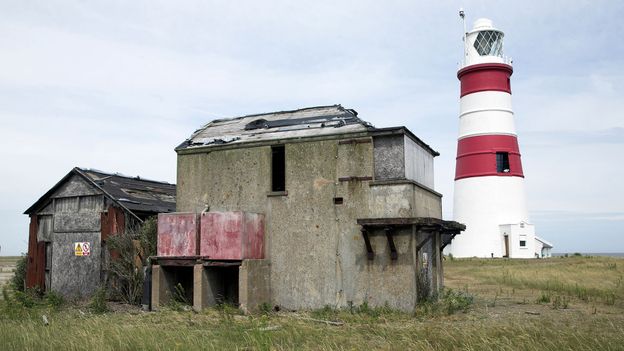 Orford Ness is Britain's answer to Area 51. It may now be abandoned, some of its research still secret, and much of its land too dangerous to walk over, but its past continues to ripple through the country's present and future.
The former top-secret site of Orford Ness is situated on a spit of land about 100 miles (160km) north-east of London on the Suffolk coast. The twisting country roads that take you there make it seem much further, however. When I arrive after a long car journey, it is impossible to tear my eyes away from the triangular rooftops of the disused nuclear weapon laboratories lining the horizon. The need to funnel any explosion upwards gave two of the laboratories their unique pagoda-like shape. All but their roofs are hidden behind a huge earthen wall, which blocks the view of curious onlookers as well as protecting the site from the sea.
Continued here
|
S25New year, new feed: Tech media must-follows for 2023 Here at Rest of World, we believe that the people on the ground give the clearest view of their own tech ecosystems. So, we make it a habit to keep an eye on all of them: not only the journalists and analysts, but the boisterous business personalities, the viral sensations, and the culturally influential characters.
As 2023 kicks off, we’re sharing some of our favorite accounts for decoding the tech scenes we operate in, from China to Nigeria to the U.S. Get ahead of the year by following them, too.
Continued here
|
S26Digital nomads now come first for Mexico City's gig workers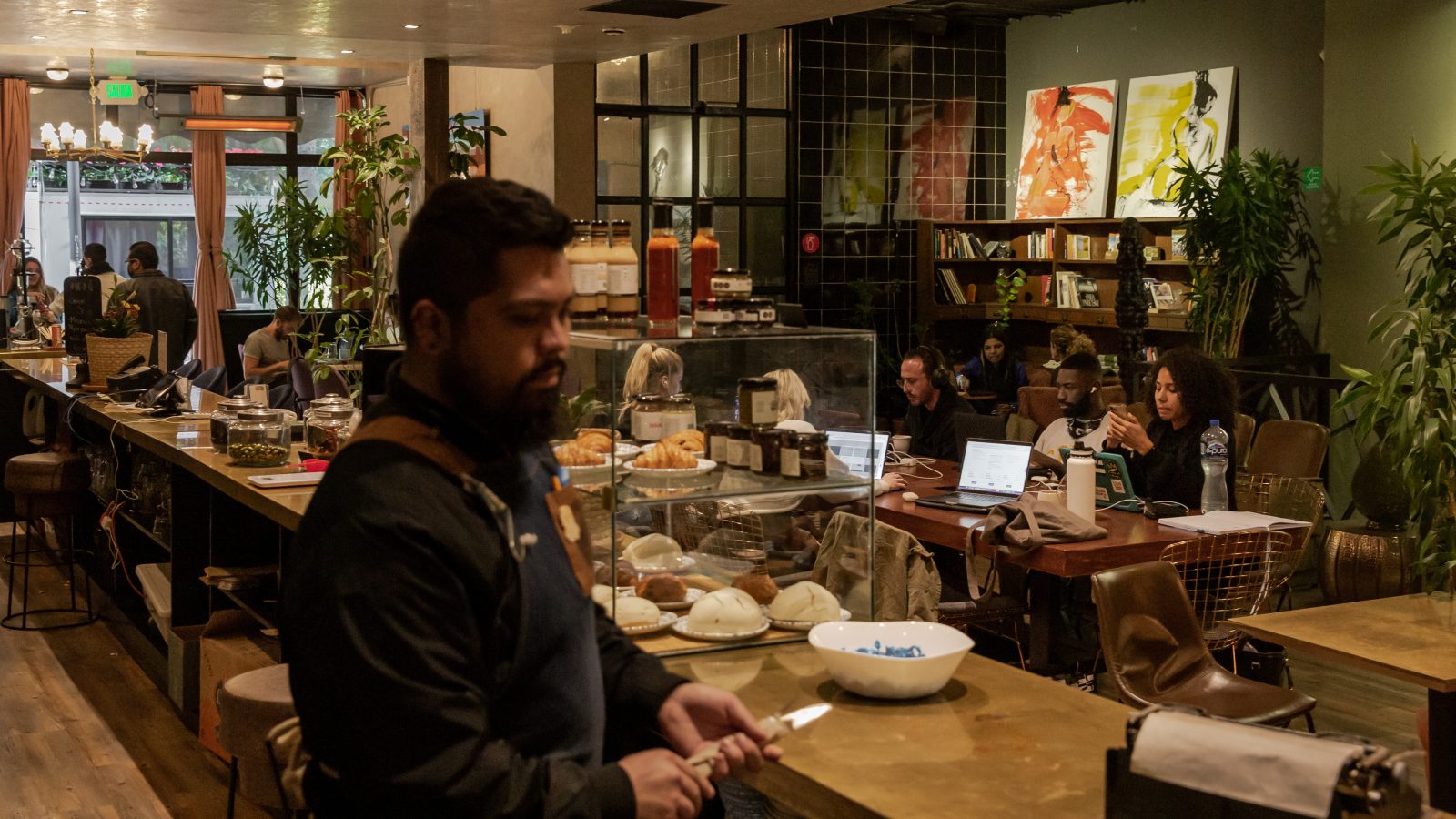 Chef Enrique Partidas Daboin works out of Santa Fe, a financial district in Mexico City, home to numerous international businesses, startups, and, more recently, English-speaking digital nomads. Daboin works from a dark kitchen where he spends a typical day preparing elaborate made-to-order meals to be shipped off via Facebook, WhatsApp, and last-mile delivery platforms like Rappi. As 95% of his clients are foreign, he must work together with distributors and gourmet markets to secure imported ingredients to satisfy diverse palates. Daboin told Rest of World that he has fully embraced the new wave of migrants and nomads, who he said are willing to pay a premium.
Daboin is one of the thousands of workers connecting digital platforms and applications with the growing base of foreigners who have settled in Mexico City. Some are highly visible, like the brightly uniformed delivery gig workers on bicycles and motorbikes, but many go unnoticed — cleaning workers, personal chefs, gallerists, and dog walkers, often making their way from the poorer outskirts of the city or the neighboring State of Mexico. Most descend on foreigner- favorite neighborhoods such as Condesa, Polanco, and other digital nomad-heavy districts. The incentives are clear: Foreigners, particularly migrants from the U.S., spend more lavishly and more often on app-based services than locals do.
Continued here
|
S27Flavor-Enhancing Spoons and Chopsticks Could Make Food Taste Better New types of cutlery can enhance flavors such as sweetness or saltiness for a more satisfying meal
Foods high in sugar and salt can be unhealthy, but these additives are too delicious for many of us to give up or reduce in a big way. What if we could somehow enjoy their taste without actually eating them? A student team has now designed a spoon with a structure that stimulates taste buds to produce a sensation of sweetness—without adding calories or chemicals. The project follows previous work involving flavor-enhancing cutlery, such as chopsticks that amplify saltiness with a mild electric current.
Continued here
|
S28How Star Collisions Forge the Universe's Heaviest Elements Scientists have new evidence about how cosmic cataclysms forge gold, platinum and other heavy members of the periodic table
Bits of the stars are all around us, and in us, too. About half of the abundance of elements heavier than iron originates in some of the most violent explosions in the cosmos. As the universe churns and new stars and planets form out of old gas and dust, these elements eventually make their way to Earth and other worlds. After 3.7 billion years of evolution on our planet, humans and many other species have come to rely on them in our bodies and our lives. Iodine, for instance, is a component of hormones we need to control our brain development and regulate our metabolism. Ocean microplankton called Acantharea use the element strontium to create intricate mineral skeletons. Gallium is critical for the chips in our smartphones and our laptop screens. And the mirrors of the JWST are gilded with gold, an element useful for its unreactive nature and ability to reflect infrared light (not to mention its popularity in jewelry).
Continued here
|
S29S30Paul Catchlove: The habit that could improve your career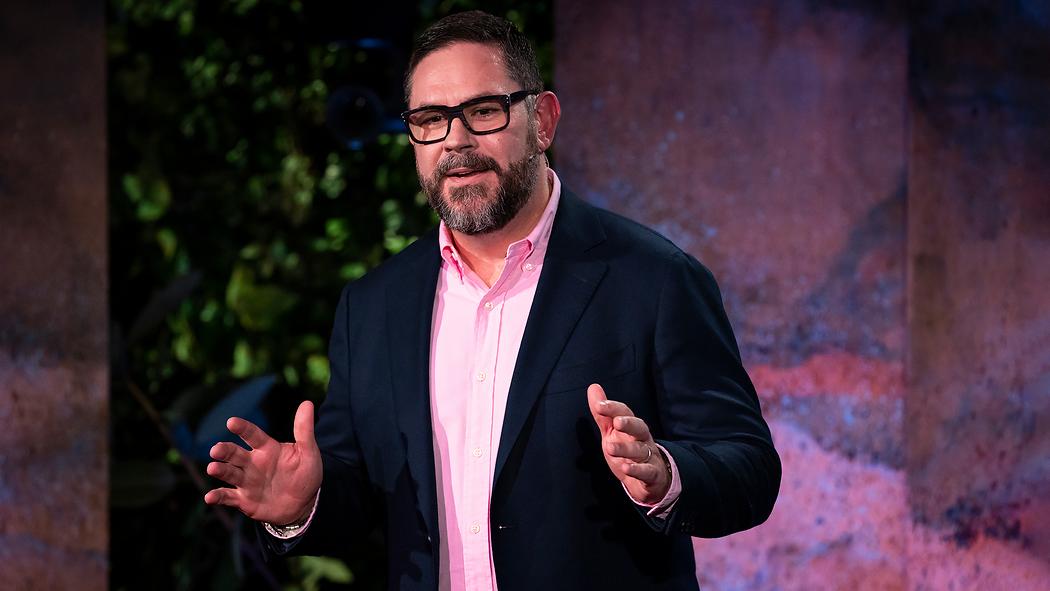 Paul Catchlove believes strongly in the power of reflection. Through every career he's held -- from priest to opera singer to senior management consultant -- he's benefitted from a habit of considering and analyzing his goals, needs and performance. Learn more about how a regular practice of reflection can improve your decision-making, career and relationships.Continued here
|
S31What the discovery of exoplanets reveals about the universe What are the planets outside our solar system like? Astrophysicist and TED Fellow Jessie Christiansen has helped find thousands of them (and counting), and the variety is more wonderful and wild than you might imagine. She shares details on the trends emerging from the data -- including the intriguing possibility of "super-Earths" -- and what the discovery of exoplanets means for existential questions like: Where do we come from, and how did we get here?Continued here
|
S32How Often Should You Update Your Profile Photos? Have you ever made an appointment with someone online and, when you meet them in person, find that they're almost unrecognizable? During the past few years, many people increased their online presence, with social media, Zoom, LinkedIn, personal websites, and more becoming crucial ways to connect and work or socialize remotely. Of course, most of these platforms have the option to include a profile photo. When is the last time you updated yours?
“The headshot is a hello. It’s a first impression, and, whether we like it or not, we live in a visual world,” says Craig Toron of Toron Photography. Over the past year, it was common to hear stories about people who gained weight, lost weight, or stopped dying their hair. Now that many people are back in the office, there may be a discrepancy between how we look in person and the photos we use to represent ourselves online. First impressions matter, but how big a deal is it if we look different in person than in our digital image?
Continued here
|
S33Unmasking Pedro Pascal, the Complicated New Face of Sci-Fi PEDRO PASCAL is a little too nice, actually. Too many hugs. So many polite refusals of snacks. On the set of a photo shoot for this interview, there’s an evident tension inside him. He retreats into the aloofness of celebrity, but he is also eager to connect. He seems to enjoy having his picture taken, but he gets shy when the photographer moves in for a close-up. It’s in his nature to be open, but he holds a lot of himself back. He’s not too far off, in fact, from the anonymous bounty hunter he plays in The Mandalorian. He wants to take off the mask and let people see his face, but he doesn’t want to deal with the fallout.
Too bad. Not only is Pascal returning for season three of The Mandalorian, he’s also starring in HBO’s The Last of Us, probably the biggest video-game-to-TV adaptation of all time. In that now oh-so-recognizable face of his, one senses, well, shock. It’s unthinkable—magazine covers, TV stardom, all of it—for a kid who wrapped himself up in ’80s movies and late-night HBO after his family fled Augusto Pinochet’s dictatorship in Chile, seeking political asylum in Denmark before eventually ending up in the United States. Pascal always dreamed of being a performer, yes. And he spent years kicking around with small television roles and New York theater gigs before getting his eyes gouged out in Game of Thrones. But he never imagined becoming Hollywood’s go-to reluctant father figure. You know, famous.
Continued here
|
S34It's Time to Teach AI How to Be Forgetful Our brain has evolved to make predictions and explanations in unstable and ill-defined situations. For instance, to understand a novel situation, the brain generates a single explanation on the fly. If this explanation is upturned by additional information, a second explanation is generated.Â
This story is from the WIRED World in 2023, our annual trends briefing. Read more stories from the series here—or download or order a copy of the magazine.
Continued here
|
S35S36Tyler Cowen: America is at a critical point in history The rate of progress in American society has been uneven throughout history, argues economist Tyler Cowen. Tremendous periods of growth are followed by periods of stagnation.
Periods of growth occur when there is a breakthrough, and other advances quickly follow. For example, the Industrial Revolution and electrification of homes allowed the standard of living to grow at a fast rate, particularly in the early to mid-20th century.
Continued here
|
S37S38Meet the neuroscientist who uses puzzles to help the brain heal after injury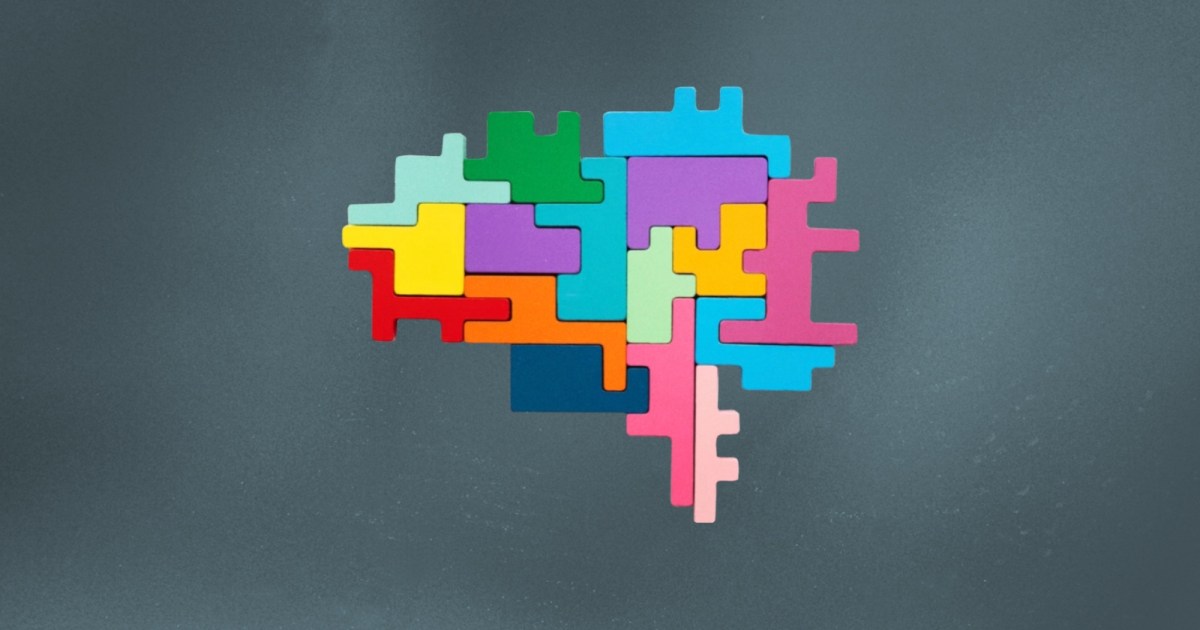 When neuroscientist Donalee Markus first meets with her clients, she asks them to reproduce an abstract image using colored pencils. Every minute or so, they are asked to change pencils, from red to green to blue, and then other colors if necessary.
The colors leave behind traces of their problem-solving strategies. Do they begin by drawing the square at the center of the image? Or moving from left to right? Or recreating the pointed figures on the outside? Or isolating the small details in the center of the image?
Continued here
|
S39How the brain transfers fear memories to long-term storage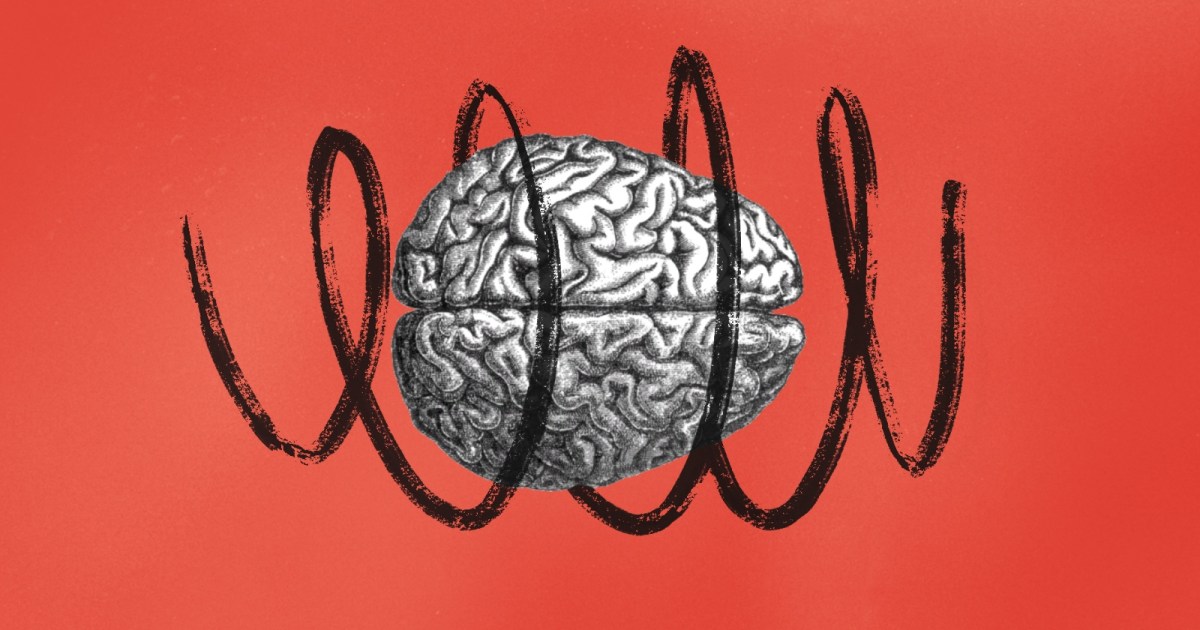 How memories are encoded, stored, and retrieved is the most intensively studied topic in neuroscience, and it is well established that a brain structure called the hippocampus plays a critical role in these processes.
It is widely believed that memories are transferred to the prefrontal cortex (PFC) for long-term storage, and that their retrieval becomes more dependent on the PFC, and less so on the hippocampus, with time. There is, however, little evidence for this so far.
Continued here
|
S40What are mud volcanoes? Rice farmers living in Sidoarjo Regency, Indonesia, awoke to a strange sight on May 29, 2006. The ground had ruptured overnight and was spewing out steam.
In the following weeks, water, boiling-hot mud and natural gas were added to the mixture. When the eruption intensified, mud started to spread over the fields. Alarmed residents evacuated, hoping to wait out the eruption safely.
Continued here
|
S41Comedy movies rarely make it to theaters today. Here's why.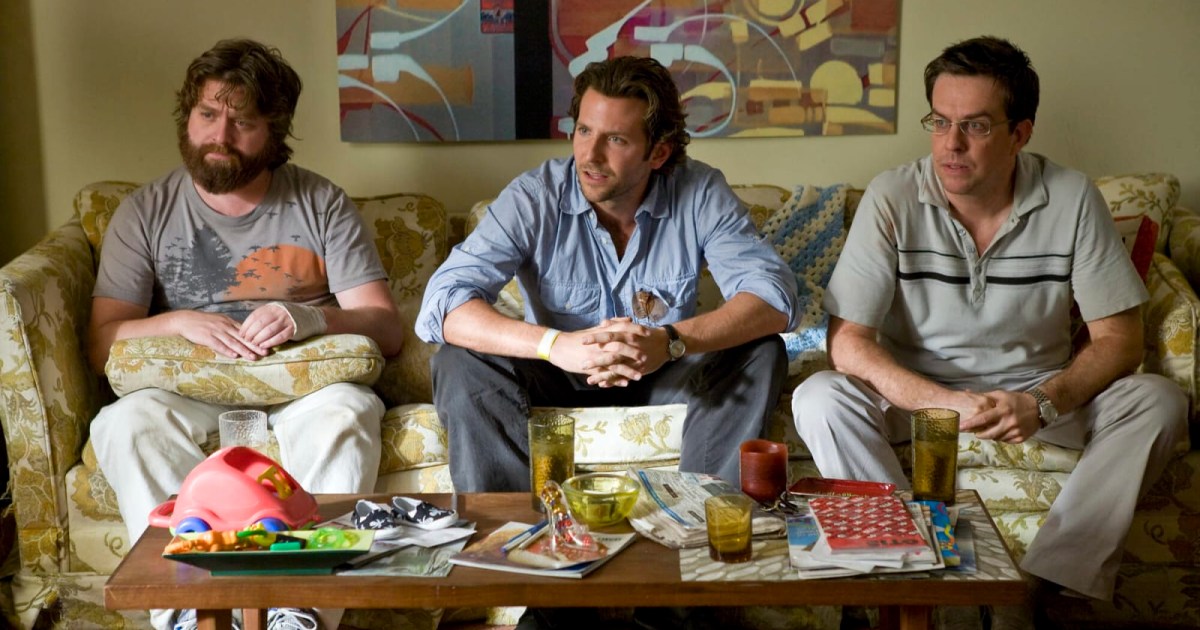 If you are an avid theater-goer with an interest in Hollywood movies, you might have noticed that the number of comedies on the big screen seems to have declined sharply over the last two decades. Whereas people used to line up to see films like Home Alone, Bruce Almighty, or The Hangover, we haven’t had hits like those in a while. The handful of comedies that do become hits — such as Murder Mystery — do so exclusively on streaming platforms. Famous directors who specialize in comedy, such as Judd Apatow, are becoming a rarity. After his career-defining franchise had burned out, The Hangover director Todd Phillips made the drama film Joker. Come to think of it, would a straightforward, laughter-for-laughter’s-sake comedy, like Airplane, Shawn of the Dead, or The 40-Year-Old Virgin, even get greenlit in today’s studio system?
How did the movie industry get to this point? Some say it’s all because of the pandemic, arguing that studios are focusing on big, action-driven blockbusters — with familiar, tried-and-tested characters — to get audiences back into the theaters in order to make up for the income they lost during lockdown. Still, the pandemic can’t fully explain the pattern.
Continued here
|
S42S43S44BMW is recalling 14,000 EVs to update the battery software BMW is the latest automaker to issue a recall for some of its electric vehicles. It has identified a problem with the battery-management software for the traction batteries in some i4 and i7 sedans, as well as some iX SUVs, that could result in a car temporarily losing power. Consequently, it wants to update the software in those cars' battery-electronic control units.
Continued here
|
S45Schools sue social networks, claim they "exploit neurophysiology" of kids' brains A lawsuit filed by Seattle Public Schools alleges that social media is one of the main causes of "a youth mental health crisis" and blames social media companies for "exploit[ing] the neurophysiology" of kids' brains. Arguing that social media companies are violating the state public nuisance law, the lawsuit seeks financial damages and other remedies from the owners of Facebook, Instagram, Snapchat, TikTok, and YouTube.
Continued here
|
S46S47US acceptance of COVID vaccines rises, now like other Western democracies COVID vaccines remain the safest way to reduce the chance that SARS-CoV-2 can put you in the hospital and are a critical component of the public health campaign against the pandemic. Yet, in the US, there has been lots of controversy and outright anger about attempts to expand vaccine use, and a substantial portion of the population appears to be avoiding the shots for political reasons.
Continued here
|
S48Microsoft's new AI can simulate anyone's voice with 3 seconds of audio On Thursday, Microsoft researchers announced a new text-to-speech AI model called VALL-E that can closely simulate a person's voice when given a three-second audio sample. Once it learns a specific voice, VALL-E can synthesize audio of that person saying anything—and do it in a way that attempts to preserve the speaker's emotional tone.
Continued here
|
S49FAA giving airlines another year to fix altimeters that can't handle 5G signals The Federal Aviation Administration will give airlines another year to fix or replace airplane altimeters that can't filter out cellular transmissions from outside their allotted frequencies. In a notice of proposed rulemaking (NPRM) released today, the FAA proposed a deadline of February 1, 2024, to replace or retrofit faulty altimeters, which are used by airplanes to measure altitude.
Continued here
|
S50S51S52What the Rioters in Brazil Learned From Americans Jair Bolsonaro’s supporters showed that antidemocratic revolutions can be contagious too.
We memorize its opening sentences in school, throw quotes from it into speeches, and generally treat the American Declaration of Independence as a familiar source of reliable tropes. But when it was published in 1776, the declaration was a radical document, and its language inspired other radical documents. In 1789, French revolutionaries published the Declaration of the Rights of Man, declaring that “men are born and remain free and equal in rights.” In 1804, the leaders of the Haitian slave rebellion proclaimed the Haitian Declaration of Independence, vowing that “in the end we must live independent or die.”
Continued here
|
S53The New Case for Social Climbing This article was featured in One Story to Read Today, a newsletter in which our editors recommend a single must-read from The Atlantic, Monday through Friday. Sign up for it here.
I was born to be a social climber. The Evita score was ever present on my grandparents’ stereo when I was growing up, and I idolized Eva Perón, who made her way from poverty to the highest echelons of government and society. She was a woman who, at least from the musical’s point of view, saw clearly where she was in life and decided she wasn’t going to stay there. What did a tiny thing like class background matter to a person with wit, determination, and a knack for making friends? These were qualities, I realized, that could transform your future. They were also things that money couldn’t buy. Which worked out nicely, because my family didn’t have any.
Continued here
|
S54Brazil's 'January 6 Moment' Is a Warning Three days ago, cable-news channels marked the second anniversary of the assault on the U.S. Capitol by replaying videos taken on January 6, 2021. Anybody who watched CNN on Friday would have seen hours of footage of protesters breaking through thin police lines, storming the Capitol, and wreaking havoc in the symbolic center of American democracy.
This made the videos broadcast yesterday afternoon look eerily familiar. Once again, protesters easily broke through a thin line of police. Once again, thousands of people stormed key government buildings, a look of giddy triumph on their faces. And once again, shocking scenes of mob violence and vandalism unfolded, as a grotesque carnival dragged on for hours in full view of the world.
Continued here
|
S55Winners of the 2022 Close-up Photographer of the Year The fourth year of the Close-up Photographer of the Year competition has just come to a close, and the winners have been announced. The contest “celebrates close-up, macro, and micro photography,” among 11 separate categories. More than 9,000 entries were received from 54 countries this year. Contest organizers have once more been kind enough to share some of the winners and finalists with us below.
Nature’s Pitfall
. Winner, Animals, and Overall Winner. Two juvenile spotted salamanders are trapped inside a carnivorous northern pitcher plant in xAlgonquin Provincial Park in Ontario, Canada. #
Continued here
|
S56Maybe Don't Unleash the Kraken These days, it’s a real headache to keep tabs on the coronavirus’s ever-shifting subvariants. BA.2, BA.4, and BA.5, three Omicron permutations that rose to prominence last year, were confusing enough. Now, in addition to those, we have to deal with BQ.1.1, BF.7, B.5.2.6, and XBB.1.5, the version of Omicron currently featuring in concerned headlines. Recently, things have also gotten considerably stranger. Alongside the strings of letters and numbers, several nicknames for these subvariants have started to gain traction online. Where once we had Alpha and Delta and Omicron, we now have Basilisk, Minotaur, and Hippogryph. Some people have been referring to XBB.1.5 simply as “the Kraken.” A list compiled on Twitter reads less like an inventory of variants than like the directory of a mythological zoo.
The nicknames are not official. They were coined not by the World Health Organization but by an informal group of scientists on Twitter who believe Omicron’s many rotating varieties deserve more widespread conversation. The names have, to an extent, caught on: Kraken has already made its way from Twitter to a number of major news sites, including Bloomberg and The New York Times. Unofficial epithets have come and gone throughout the pandemic—remember “stealth Omicron” and the “Frankenstein variant”?—but these new ones are on another level of weirdness. And not everyone’s a fan.
Continued here
|
S57All the Pretty Republicans And there were men there in attendance there with double faces, as they had been sutured one face to another with catgut and diabolic needle, and women with the nostrils of dragons.
Monstrosities of democracy they came forth in their pomp in the noon of the day. From the backwoods, from the boggy peninsulas. From the gleaming mall-lands. From the sucking swamps. Sun it did throb like a thumb in the eye of God. And the chamber was a cauldron of mockery, bepopulate with jeerers and carousers.
Continued here
|
S58Twitter Was the Ultimate Cancellation Machine Whatever else it is, Twitter is a place where the average person can subject others to their displeasure. They have been mistreated by Southwest Airlines. They have been angered by the comments of a man who sells beans. They have learned, to their horror, that the father of their favorite indie-pop star previously worked for the U.S. State Department. In posting about these things in a venue where the target of scorn might actually see the complaint—along with perhaps millions of other people—the aggrieved may experience some instant relief. If you want accountability on social media, you tweet.
Which raises a weird question: If Twitter withers under Elon Musk, where will we go with our beefs? Even before Musk’s takeover, the platform was supposedly shedding its most valuable users; now many others are expected to leave as the platform becomes glitchier and more toxic.
Continued here
|
S5917 Readers Weigh the Risks in Sports This is an edition of Up for Debate, a newsletter by Conor Friedersdorf. On Wednesdays, he rounds up timely conversations and solicits reader responses to one thought-provoking question. Later, he publishes some thoughtful replies. Sign up for the newsletter here.
Last week I asked readers, “What do you think about the health and safety risks that are inherent in sports?”
Continued here
|
S60The GOP Goes Down the Rabbit Hole This is an edition of The Atlantic Daily, a newsletter that guides you through the biggest stories of the day, helps you discover new ideas, and recommends the best in culture. Sign up for it here.
If you were hoping that a razor-thin majority in the House was going to moderate the behavior of congressional Republicans and create some sort of platform for governing, you are about to be disappointed. GOP House leaders have told us what to expect, and we should take them at their word.
Continued here
|
S61Learn the art of journaling and archive your life | Psyche Ideas is a freelance science writer and editor whose work has appeared in Nature, Science and the LA Review of Books, among others. She lives in British Columbia, Canada.
When researching other people’s lives, authors often visit archives to dig into the ephemera that made that person who they were. But when exploring our own lives, we seem to forget that we have our own personal archives, including old journals, email, text threads and voice memos.
Continued here
|
S62The World's First Vaccine for Honeybees Is Here/https://tf-cmsv2-smithsonianmag-media.s3.amazonaws.com/filer_public/78/8f/788f1c97-0ee4-4e33-a98c-5529ee0487cf/bee-g2bb669f27_1920.jpg) It could be a game-changer for beekeepers fighting American foulbrood, a disease that can wipe out entire colonies
Pollinators—like honeybees, moths, hummingbirds and bats—are in trouble. While they’re crucial for promoting biodiversity and producing food for healthy human diets, pollinators face myriad threats, including habitat loss, climate change, pesticides, air pollution and disease-causing organisms.
Continued here
|
S63Police Discover Hundreds of Stolen Artifacts at Two Spanish Residences/https://tf-cmsv2-smithsonianmag-media.s3.amazonaws.com/filer_public/a5/f8/a5f804e6-4a71-41ac-a8b0-84b4338d8b5e/2022-12-30_op_osarium_06.jpeg) Officials in Spain have uncovered a veritable treasure trove of stolen archaeological artifacts in two private homes in the province of Alicante. In a statement, the Spanish Civil Guard calls it “one of the largest illegal private collections” ever found in the region, per Google Translate.
The investigation, dubbed Operation Osarium, began in November in the village of Gata de Gorgos, where local authorities told the Civil Guard about a residence containing “various ancient bone remains.” Upon examination, police discovered hundreds of bone fragments, some dating back 4,000 to 5,000 years.
Continued here
|
S64S65'Self-Healing' Concrete May Have Preserved Ancient Roman Structures/https://tf-cmsv2-smithsonianmag-media.s3.amazonaws.com/filer_public/ce/0b/ce0bc892-278d-4582-a2c0-e960d2c254e4/gettyimages-1377556481.jpg) Ancient Roman infrastructure can put modern buildings to shame. While today’s concrete structures might only last a few decades, some long-lived concrete in Rome has survived for 2,000 years. The Pantheon’s unreinforced concrete dome, completed around 125 C.E., remains intact, according to a statement from MIT.
“The Pantheon would not exist without the concrete as it was in the Roman time,” Admir Masic, a chemist at MIT, tells the Guardian’s Nicola Davis.
Continued here
|
S66What to Know About 'Tranq,' the Animal Sedative Infiltrating Street Drugs/https://tf-cmsv2-smithsonianmag-media.s3.amazonaws.com/filer_public/02/48/0248c900-6fd3-4cfd-a3a2-d4cc25963e41/gettyimages-1426336108.jpg) Public health officials are sounding the alarm about xylazine, a substance that causes gruesome wounds and knocks users out for hours
An animal sedative that’s harmful to human health is showing up in street drugs across the United States, and it appears to be spreading. The drug, called xylazine, causes severe skin wounds and knocks users out for hours at a time, leaving them vulnerable and exposed.
Continued here
|
S67For the First Time, U.S. Repatriates an Artifact to the Palestinian Authority/https://tf-cmsv2-smithsonianmag-media.s3.amazonaws.com/filer_public/1a/39/1a393c4b-8d90-4625-8fec-7c91520ec4db/image001_1.jpg) For the first time, the United States has returned a looted cultural artifact to the Palestinian Authority. The object, an ivory cosmetic spoon that dates back to the Iron Age, was handed over during a repatriation ceremony on January 5.
Both U.S. and Palestinian officials attended the event, which was held at the Ministry of Tourism and Antiquities in Bethlehem, according to a statement from the U.S. Office of Palestinian Affairs.
Continued here
|
S68New Algorithm Closes Quantum Supremacy Window | Quanta Magazine In random circuit sampling, researchers take quantum bits and randomly manipulate them. A new paper explores how errors in quantum computers can multiply to thwart these efforts.
In what specific cases do quantum computers surpass their classical counterparts? That's a hard question to answer, in part because today's quantum computers are finicky things, plagued with errors that can pile up and spoil their calculations.
Continued here
|
S69The best movies of 2022 … you may not have seen From a sharp comedy reboot to an erotic political thriller, Guardian writers pick the hidden films of the year that people should know more about
Aftershock takes a sprawling, urgent, widely publicized yet still under-addressed national crisis - the shameful maternal mortality rate among Black women in the US - and grounds it in its more personal and galling form. The film, directed by Tonya Lewis Lee and Paula Eiselt, examines the roots and manifestations of dire statistics through the advocacy journeys of two grieving families. Two Black mothers whose concerns were downplayed or dismissed, who died in New York hospitals months apart, who would be caring for their children if not for an extremely preventable combination of medical racism, financial pressure to perform C-sections and inadequate senses of urgency. I was crying within three minutes. The film, available to stream on Hulu, should be essential viewing as a window into the many factors underlying such devastating disparities, but also as a path forward. It shows what woman-centered, choice-driven maternal healthcare could look like in the US, and the families fighting for it after the unimaginable. Adrian Horton
Continued here
|
S70
 | TradeBriefs Publications are read by over 10,00,000 Industry Executives |





























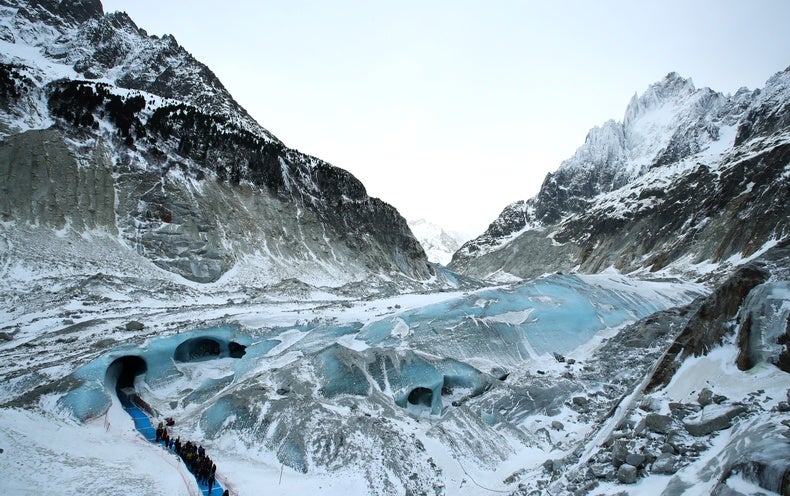





















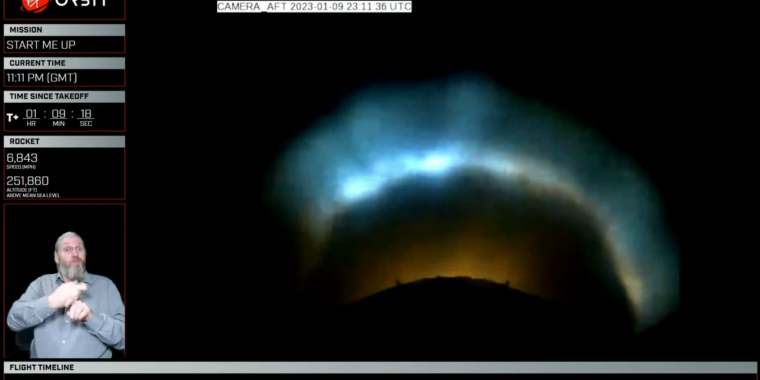










/https://tf-cmsv2-smithsonianmag-media.s3.amazonaws.com/filer_public/78/8f/788f1c97-0ee4-4e33-a98c-5529ee0487cf/bee-g2bb669f27_1920.jpg)
/https://tf-cmsv2-smithsonianmag-media.s3.amazonaws.com/filer_public/a5/f8/a5f804e6-4a71-41ac-a8b0-84b4338d8b5e/2022-12-30_op_osarium_06.jpeg)
/https://tf-cmsv2-smithsonianmag-media.s3.amazonaws.com/filer_public/e0/88/e088ab3b-153d-4f42-8106-353aa433d97d/audio-book-g9b3041a8e_1920.jpg)
/https://tf-cmsv2-smithsonianmag-media.s3.amazonaws.com/filer_public/ce/0b/ce0bc892-278d-4582-a2c0-e960d2c254e4/gettyimages-1377556481.jpg)
/https://tf-cmsv2-smithsonianmag-media.s3.amazonaws.com/filer_public/02/48/0248c900-6fd3-4cfd-a3a2-d4cc25963e41/gettyimages-1426336108.jpg)
/https://tf-cmsv2-smithsonianmag-media.s3.amazonaws.com/filer_public/1a/39/1a393c4b-8d90-4625-8fec-7c91520ec4db/image001_1.jpg)




No comments:
Post a Comment